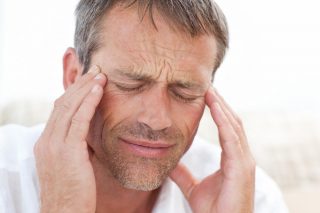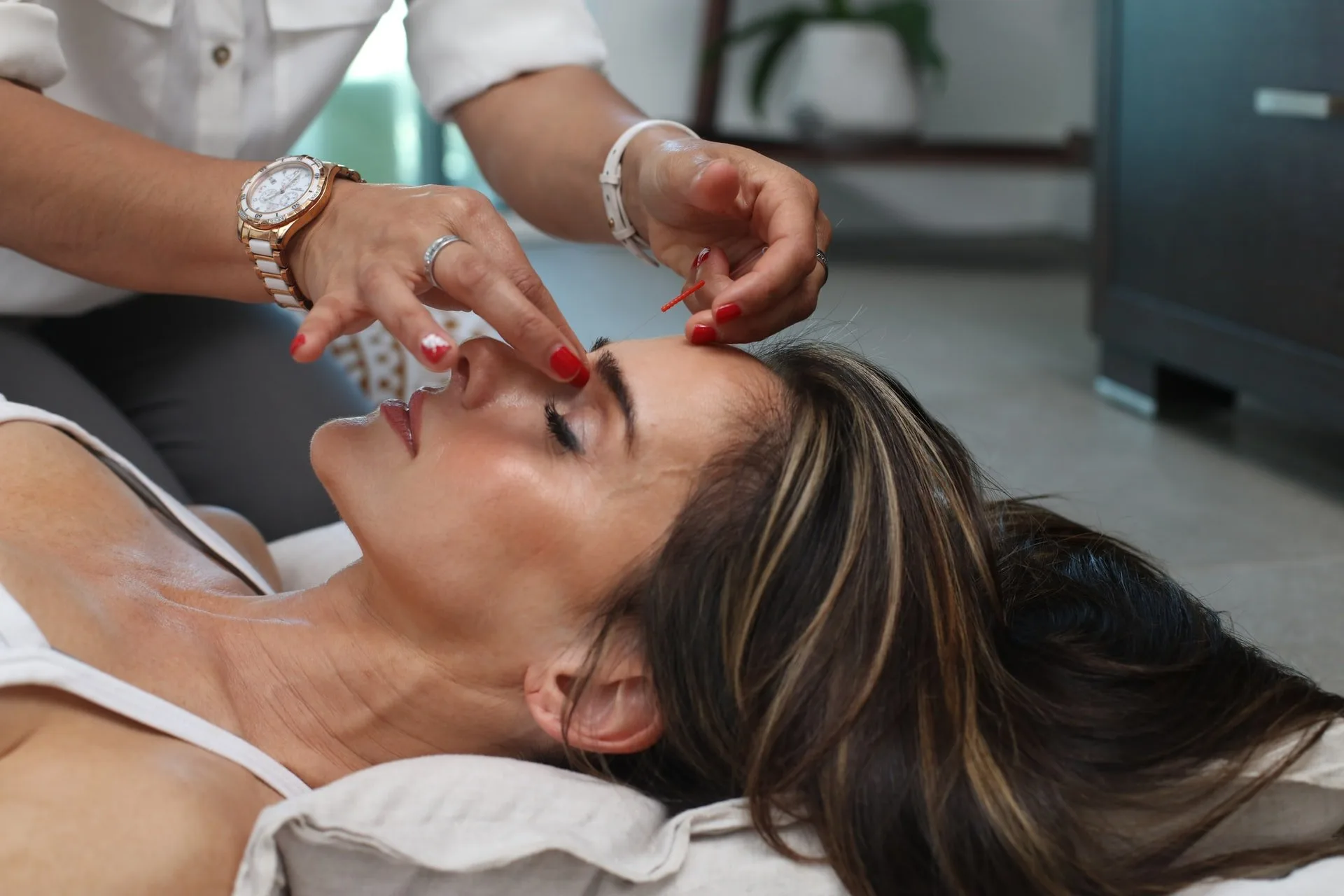Acupuncture is an age-old natural medicine practice that helps balance energy and relieves stress and pain.
A natural approach to better health
Originated thousands of years ago, acupuncture is a TCM (traditional Chinese medicine). It’s based on the premise that a disturbance or a blockage in the flow of life energy of the body, can cause health issues. In the human body, there are around 1000 acupuncture points, each one of them lying on an invisible channel of energy, or as its known “meridian”. And each channel of energy is associated with an organ in our body.
But how does acupuncture work?
There are a number of theories, but researchers do not fully understand how acupuncture might work.
Acupuncturists insert needles that are very thin on specific acupuncture points all over the body in order to restore the flow of body energy.
For example, one theory of how acupuncture works is that it stimulates endorphins, which is our body’s natural pain-relieving chemical. Another theory is that acupuncture is influence to the part that controls bodily functions (autonomic nervous system).
This being said, acupuncture can boost your chances for workplace success and offers other health benefits, which will improve your productivity. In many cases, acupuncture may also reduce the emotional and physical impacts of a stressful or unhealthy work environment.
Your wellbeing and health should be prioritized even in your work environment, and not only when you are outside of work.
Less stress means happier and healthier
Health is a 24/7 job and is directly linked both with your productivity and happiness. and productivity.
Due to its usefulness and versatility, acupuncture is practiced in a lot of forms: traditional Chinese Acupuncture, Auricular Acupuncture, Boulder Acupuncture, Acupressure, Teishein, etc.
Here is a look at the best benefits of acupuncture:
1. Reduced Stress
The reason why people seek acupuncture treatment is stress.
Nearly 77% of people admit that we experience symptoms of stress, be it from the pressure we put ourselves on the work placed, or other goals.
We all know that work is a major trigger, acupuncture has proved itself to be very useful when it comes to moderating moods to reduce anxiety, or to lower stress hormones. Overall to improve the feelings of happiness.
2. Acupuncture Can Relieve Back Pain, Neck Tension and Relieve Joint Pain in the Hands and Arms
Poor posture, keyboards, heavy backpacks, cell phones are just a few things that lead to pain and manage to keep us up at night.
The acupuncture method can reduce swelling, inflammation, and pain.
3. Treating Headaches
Acupuncture has been used for a long time to treat headaches. Furthermore, recent studies have shown that acupuncture can reduce migraines. With a sense of well-being and relaxation, acupuncture is the perfect choice treatment for those seeking a less invasive, drug-free option.
 4. Relieves Eye Strain
4. Relieves Eye Strain
Acupuncture can relieve eye pressure that sometimes scientists connect to neck tension. Acupuncture also treats many eye illnesses including short-sightedness, hypermetropia, cataract, glaucoma, presbyopia, astigmatism, amblyopia, diplopia, color blindness, and night blindness.
5. Boost Immune Systems and Reduce Sick Days
Acupuncture can boost your body’s immune system and help fight pathogens. Acupuncture treatment can also reduce the symptoms that keep you feeling exhausted from work.
6. Improve Mental Clarity and Increase Energy
Most patients report improved mental clarity and often experience increased energy. One of the many benefits is improved sleep, which is why acupuncture is usually used to treat sleep disorders like insomnia.
7. Can Regulate Digestive Systems
The connection between digestive health and overall health is inescapable. Acupuncture is proven that can effectively regulate the digestive system, which is good news for those that are disturbed by gastrointestinal problems.
8. Allergy Relief
Acupuncture can prevent allergies, but it is important to start treatments to strengthen your body before allergy season begins. Acupuncture is proven to reduce allergy symptoms and can be replaced with antihistamines.
9. Reduces Smoking Cravings
If you have decided to quit smoking, acupuncture can be really effective. In addition to helping ease nervousness, curb cravings, and lessen irritability, it also promotes lung tissue repair while increasing relaxation and detoxification all over the body.
10. Can Relieve Injuries in the Body Due to Repetitive Strain
Constant stress is the most common job-related consequence that can lead to a high number of days away from work. Acupuncture can be effective in treating constant stress and can reduce the need for surgery or drugs. It helps to avoid the overuse of pharmacological products that may impact productivity and quality of life.
In closing
Acupuncture can be highly effective in managing stress and improving your general work productivity and wellbeing. However, it is important that your acupuncturist is well-trained. Acupuncture is more of a complementary treatment, and it should never be solely used in the place of standard medical care. Rather, use it alongside conventional treatments, especially in cases of chronic or severe illnesses.
References
Brinkhaus B, Witt CM, Jena S, et al. Acupuncture in Patients With Chronic Low Back Pain: A Randomized Controlled Trial. Arch Intern Med. 2006;166(4):450–457. doi:https://doi.org/10.1001/archinte.166.4.450
Casio, D, Lin E.H, Traditional Chinese Medicine & Acupuncture, Practical Pain Management (2016), https://www.practicalpainmanagement.com/treatments/complementary/acupuncture/traditional-chinese-medicine-acupuncture
Chou R, Deyo R, Friedly J, et al. Nonpharmacologic Therapies for Low Back Pain: A Systematic Review for an American College of Physicians Clinical Practice Guideline. Ann Intern Med. 2017;166:493–505. [Epub ahead of print 14 February 2017]. doi: https://doi.org/10.7326/M16-2459
Jing Guo, Lin-Peng Wang, Cun-Zhi Liu, et al., “Efficacy of Acupuncture for Primary Insomnia: A Randomized Controlled Clinical Trial,” Evidence-Based Complementary and Alternative Medicine, vol. 2013, Article ID 163850, 10 pages, 2013. https://doi.org/10.1155/2013/163850.
Leung, M. C., Yip, K. K., Lam, C. T., Lam, K. S., Lau, W., Yu, W. L., … So, K. F. (2013). Acupuncture improves cognitive function: A systematic review. Neural regeneration research, 8(18), 1673–1684. doi:10.3969/j.issn.1673-5374.2013.18.005
Linde K, Allais G, Brinkhaus B, Fei Y, Mehring M, Vertosick EA, Vickers A, White AR. Acupuncture for the prevention of episodic migraine. Cochrane Database of Systematic Reviews 2016, Issue 6. Art. No.: CD001218. DOI: 10.1002/14651858.CD001218.pub3.
Vickers AJ, Cronin AM, Maschino AC, et al. Acupuncture for Chronic Pain: Individual Patient Data Meta-analysis. Arch Intern Med. 2012;172(19):1444–1453. doi:https://doi.org/10.1001/archinternmed.2012.3654
About the author
 Andy Braddell is a UK blogger with tremendous experience in traveling. He wants to encourage people to be curious about the world and find ways to fit more travel into their lifestyle than they already have. He wants others to look at him and say ‘Because of you I didn’t give up.’ He is very passionate about health and wellness too…he loves to find new ways to make things healthier.
Andy Braddell is a UK blogger with tremendous experience in traveling. He wants to encourage people to be curious about the world and find ways to fit more travel into their lifestyle than they already have. He wants others to look at him and say ‘Because of you I didn’t give up.’ He is very passionate about health and wellness too…he loves to find new ways to make things healthier.



![women [longevity live]](https://longevitylive.com/wp-content/uploads/2020/01/photo-of-women-walking-down-the-street-1116984-100x100.jpg)










